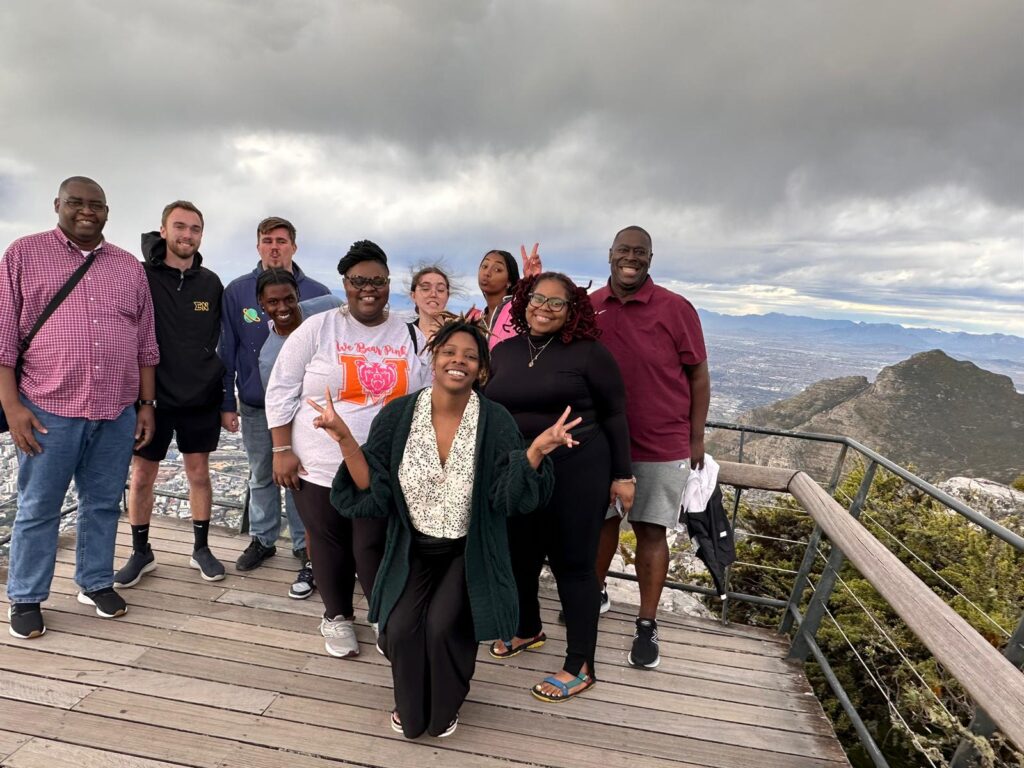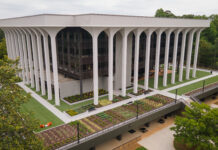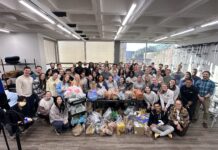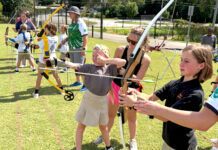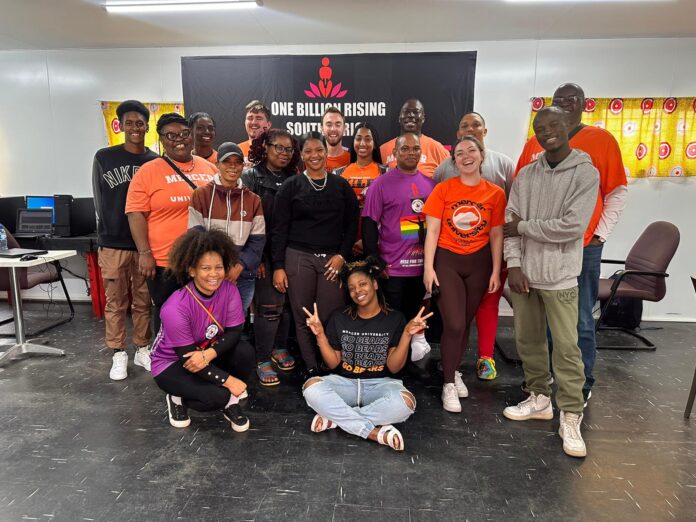
Caden Hamrick had paid his deposit and was ready to go on the 2020 Mercer On Mission trip to South Africa as a freshman, but then COVID-19 canceled all the programs that summer. Jobs and internships kept him busy the next two summers, but he finally made that trip to South Africa — his first time abroad — two months before his graduation.
Hamrick, a computer engineering major, was one of eight Mercer University students who participated in an alternative spring break trip to South Africa, led by professors Dr. Donald Ekong and Dr. Sabrina Walthall, on March 4-12. Four of the students were from the College of Professional Advancement, three from the School of Engineering and one from the College of Liberal Arts and Sciences.
The Mercer team spent three days teaching app development to young adults and children at the Philisa Abafazi Bethu Center in Cape Town and the rest of their week doing cultural immersion activities. They also donated 10 laptops to the center so that students and staff can continue to learn about programming.
Dr. Ekong, an associate professor of computer engineering who grew up in Africa, said he had been interested in leading a study abroad program to South Africa since before the COVID-19 pandemic. Mercer already has two Mercer On Mission summer programs to the country, but he wanted to offer a shorter immersive experience for students who couldn’t do those longer trips.
The Mercer team used a program called App Lab through code.org to teach the South African residents, working with young adults and staff at the center each morning and children in the center’s after-school program later in the day. Hamrick said the children they worked with were a little younger than they anticipated, but they were able to adapt the lessons to meet their learning needs.
“(The trip) aligned with my background as a computer engineer and allowed me to experience something new,” said Hamrick, who had never taught coding before this trip. “I really enjoyed it. It was really cool to work with them and see that even though it was a foreign concept, they grasped it. Some of them were really into it.”
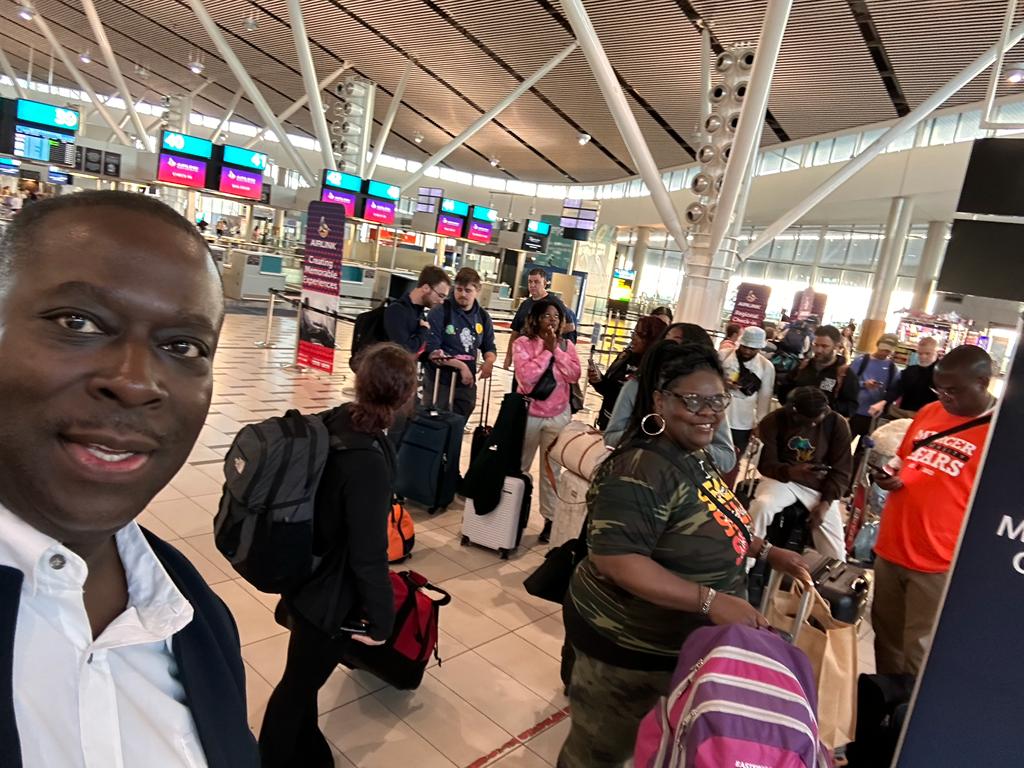
Louisa Houser, a freshman computer science major, was drawn to the trip because she was born in South Africa and had an interest in teaching beginning-level app development. She lived in the city of Pietermaritzburg until age 7, when her family moved to the United States, but had only briefly visited Cape Town.
Gregory Crews, a liberal studies major, said this was his first time building apps. It challenged him, but he was able to learn the process and then walk the South African students through it.
“Some of them had computer experience, and some had never worked on the computer before,” said Crews, who fulfilled his longtime dream of traveling to the continent of Africa. “Some of them picked it up very quickly. It was incredible to see them absorb the information. I think more than anything, it was the interaction that they got from us that they really enjoyed, and then to add the app building into it I think was just incredible for them.”
Dr. Ekong said learning how to build apps opened up more opportunities for the students to pursue STEM (science, technology, engineering and math) careers in the future. They can continue their programming lessons using the computers and software donated by Mercer.
“One of the most memorable moments was when we told the staff member we were working with that we were going to be leaving the computers with them,” Hamrick said. “She teared up and got kind of emotional. That, for me, made it worth it.”
Dr. Ekong recruited Dr. Walthall, associate professor of science in the College of Professional Advancement, for the trip to provide her expertise on the service-learning components.
“It was my job to make sure students had some of the cultural awareness before we got to South Africa,” she said. “We were there to immerse ourselves in the culture and to be a part of the community or learn about the community, not just to be in there and think we were coming to save anyone. We were really there to serve the people and to get to know them.”
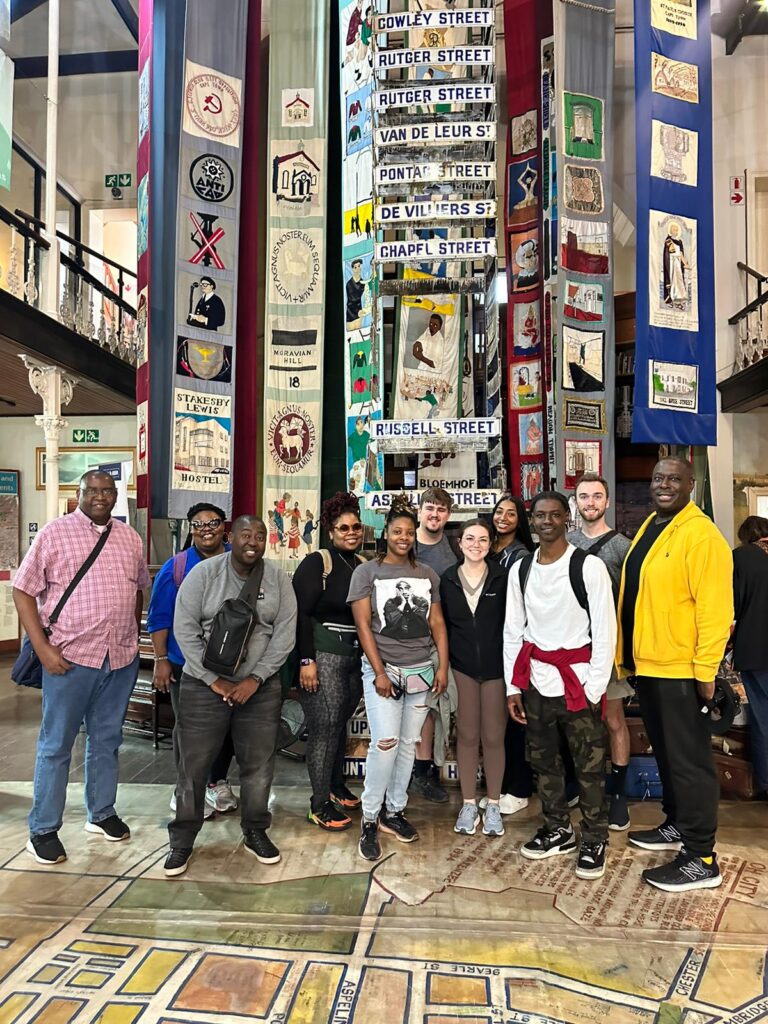
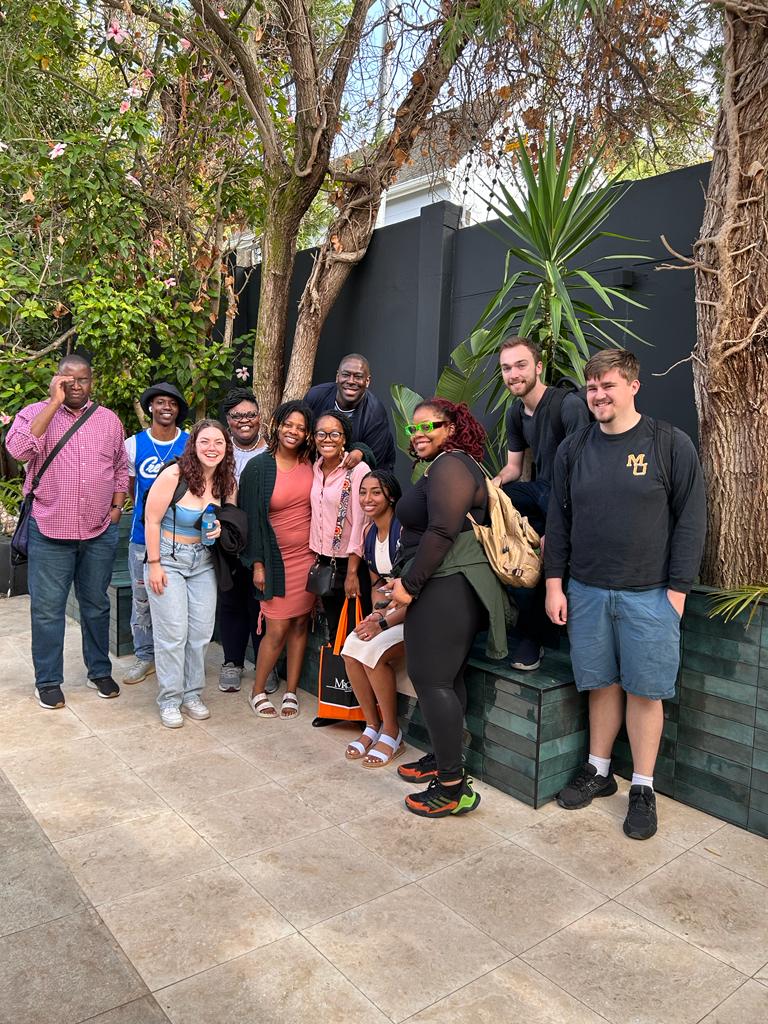
When the Mercer students finished coding projects at the center, they were encouraged to have conversations with the South African students and interview them to learn more about their lives, she said.
“The term community is very different from how you would apply it in the States. Being able to discuss what life is like in comparison was very, very rewarding,” Houser said. “It was about being able to connect and not go in with the mindset that we’re there to fix. We were there to listen and connect and hear their story.”
The center’s director told Dr. Walthall that her students might not remember all of the Mercer team’s names, but they would never forget their orange shirts.
“That statement stuck out in my head because it branded us,” Dr. Walthall said. “It branded us as Mercerians, it branded us in the mind of the organizer herself and in the mind of students we had dealt with.”
The Mercer students also had the chance to learn more about South Africa during visits to cultural sites such as Robben Island, where Nelson Mandela was imprisoned; District Six Museum; Table Mountain; and Cape of Good Hope. They heard firsthand accounts from South Africans who were forcibly moved from District Six during apartheid and imprisoned at Robben Island.
“Hearing stories and seeing these locations really moved me,” Crews said. “I enjoyed how they verbally told their stories, which is big in that culture. As a storyteller, it meant a lot to me to hear those stories. It impacted me on so many different levels, honestly.”
Houser’s favorite cultural activity was the dinner with jazz and marimba music on the last night of the trip. She enjoyed eating traditional South African dishes and hearing musicians play songs that she’s known since childhood.
Crews said the beauty of South Africa was unparalleled.
“I feel like everywhere we went was picture perfect,” he said. “I had emotional moments because it was just so beautiful.”
Dr. Ekong said he enjoyed being able to help students from the United States see and experience a part of Africa that they don’t normally see in the news. He would like to lead similar study abroad trips to countries like Ghana, Rwanda and Botswana in the future.
